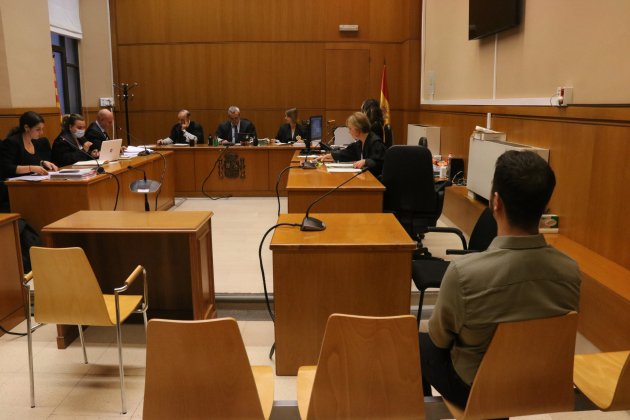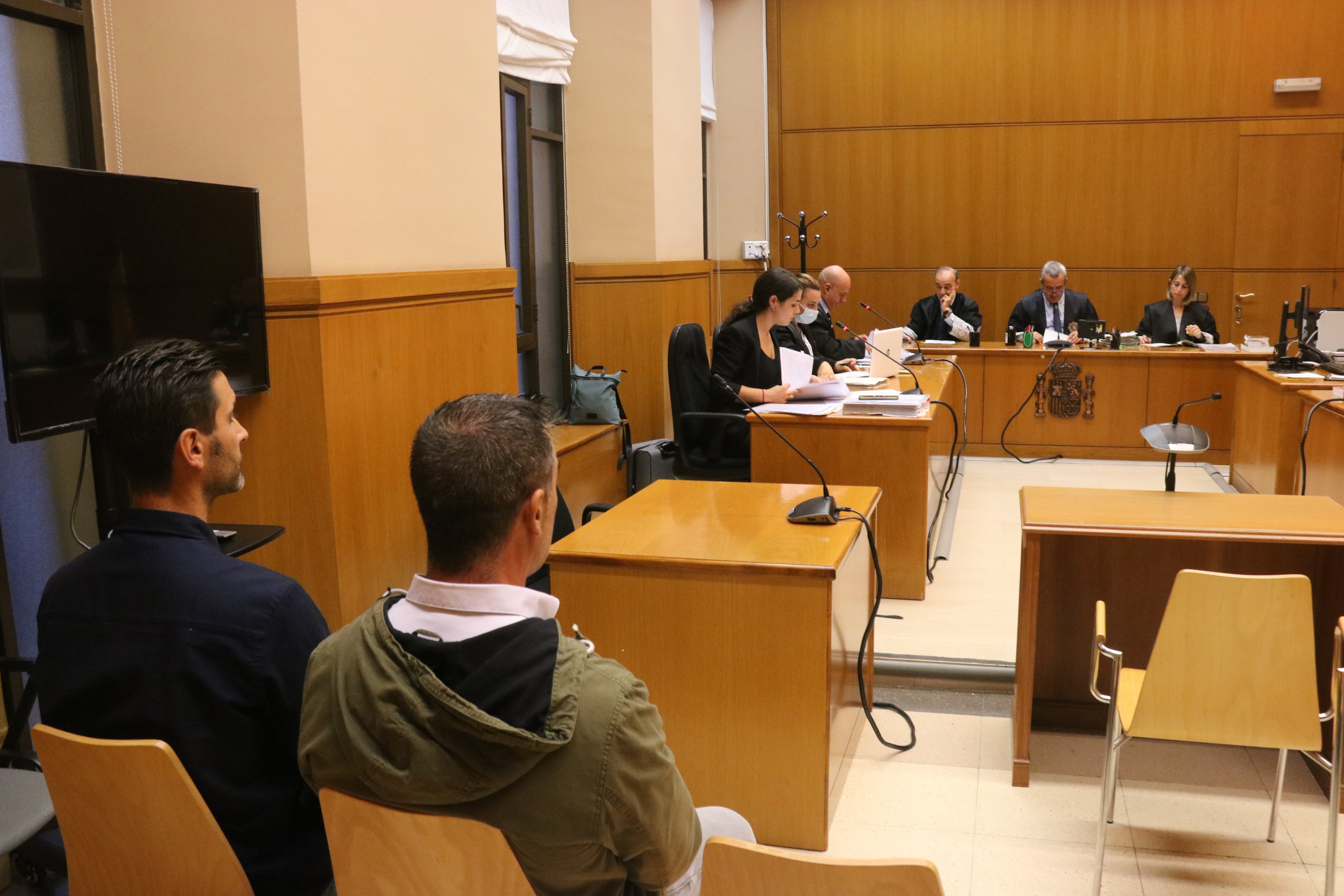Contrasting accusations and opposing versions. The Barcelona Audience has this Tuesday heard the trial of two Spanish police officers accused of assaulting a young man, Roger Umpierrez, of Premià de Mar, who is himself accused of attacking them, in events which took place both outside and inside the police station on Barcelona's Via Laietana in November 2017. The prosecutor called for two years in prison for the youth, for attempted attack on an authority, and alternatively, six months' jail for an offence of resistance; and he makes no accusation against the officers. The youth's lawyer, Norma Pedemonte, calls for 4 years in prison and 5 years of banning from their profession for each of the two officers for crimes against moral integrity. The officers' lawyers are asking that Umpierrez be sentenced to three years in prison for attempting to attack an authority, and alternatively, to one year in prison for the crime of resistance. All three have denied the allegations. The officers' defence lawyers have asked for their acquittal, and the extenuating circumstance of undue delays.
The events happened on November 11th, 2017 when Roger Umpierrez and four friends were walking up Via Laietana in Barcelona, after taking part in an anti-fascist demonstration, which had previously passed by the Prefecture of the Spanish National Police force, in Via Laietana, without incident. In the trial, the accused officers, who were from out of Catalonia, and sent to Barcelona for the so-called Operation Copernicus - to stop the 1st October referendum - stated that they were in a police vehicle and in uniform, when they heard, on the opposite sidewalk, insults and death threats from a young man, and they crossed the street to ask him for his ID. One of them said that Umpierrez refused to identify himself and hit him on the left hand, which is why, in the end, he was arrested. Both officers denied kicking the young man in his body and face in the prefecture's small elevator. The youth provided a medical certificate, which was from after his release by the police, which indicated a bruise on an ankle and one on the face, consistent with a slap. Two other officers who took him in an unmarked car to the Verneda police station, along with the two defendants, recalled today that the youth "asked for forgiveness and said he went too far".
"I couldn't leave home for a month"
Earlier, four friends who were with Roger Umpierrez on the day of the incident told a completely opposite version to the officers. They explained that they were returning from the demonstration to go home and, opposite the prefecture, three or four Spanish police officers "with batons in their hands" came out towards them and arrested Roger without any explanation, while the others kept them separated. "He raised his hands and they put his arms behind his back, pushed his head down and they took him to the police station", several of them said in their testimonies, not understanding the reason why they chose him and not the rest. "By chance", said one witness. "We were all afraid. They were very aggressive and we did what they wanted", said a friend. Another witness reported that they took Umpierrez almost dragging him, and he had not put up resistance.
In his statement, Roger Umpierrez confessed to the court: "After the arrest I could not leave my house for a month." He affirmed that he did not insult the officers, nor did he refuse to identify himself and no way did he hit one of them on the hand. He raised his hands and when he made the gesture of getting out his wallet to identify himself, he was arrested. He also clarified that he did not file the complaint until a month after being reported by the agents to "overcome the fear of arrest and to collect evidence". And he clarified that he asked for forgiveness in the police vehicle "out of fear and survival because I thought they would leave me in a cell".

Presiding judge acts as Catalan translator
The trial was held in Spanish, since the two officers were from outside Catalonia, although the young man's defence lawyer had declared that she would take part in the trial in Catalan. There was no controversy. In one case, the presiding judge, Jordi Obach, allowed a witness to testify in Catalan and he himself acted as a translator for the police. At the beginning of the trial, the lawyer Norma Pedemonte denounced the obstacles that the judge of the 14th District Court of Barcelona had put in place to investigate Roger's complaint against the officers, adding that she had to 'promote' the case "with the help of the Barcelona Audience", which accepted the appeals.
The infamy of the Prefecture
The Prefecture of the Spanish National Police in Via Laietana has once again been denounced as a space in which human rights have been violated, according to the accounts of young people arrested in the major protests in October 2019 against the Supreme Court conviction of the Catalan pro-independence leaders. One of the cases is that of Guillem Padilla, known as "the boy in the orange sweatshirt", the garment he was wearing when arrested.
Precisely, this Tuesday, the Dignity Commission called a new rally in front of the prefecture so that the building in Via Laietana is converted into a centre for interpretation of repression and torture.
Demà dimarts 4, 19h. Altre cop reclamarem que Via Laietana 43 sigui un centre d'interpretació de la repressió i la tortura, amb el testimoni de Josep Andreu, alcalde de Montblanc, i l'actor Enric Majó ens llegirà el d'en Gregorio López Raimundo
— ComissioDignitat (@ComissDignitat) October 3, 2022
No ens aturarem!!
No ens aturaran!! pic.twitter.com/xYdGWzhIEN

